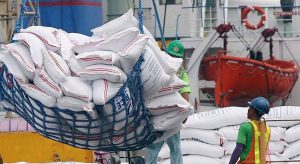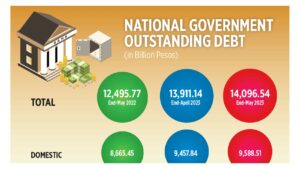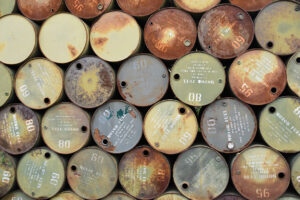Rice imports seen exceeding forecast to build up reserves ahead of El Niño

By Adrian H. Halili, Reporter
RICE IMPORTS will likely exceed earlier projections in order to build up reserves ahead of the peak of El Niño, analysts said.
Agriculture Secretary Francisco T. Laurel Jr. said last week that he gave rice traders 30 days to import rice or risk the cancellation of their permits.
Economists said El Niño, which is expected to run until early 2024, will dampen farm production, resulting in a need for more imports.
“It will be good to act conservatively when it comes to dealing with a possible rice shortage next year, when the lean season starts and a projected ‘bad’ El Nino is expected to hit food production worldwide,” Calixto V. Chikiamco, Foundation for Economic Freedom (FEF) president, said in a Viber message.
As of Nov. 16, rice imports have hit 2.94 million metric tons (MT), according to the Bureau of Plant Industry.
The US Department of Agriculture projected earlier that rice imports this year may hit 3.8 million MT.
In response the Philippine Department of Agriculture DA) said that imports of the grain would com in below the USDA’s estimates.
Rizal Commercial Banking Corp. Chief Economist Michael L. Ricafort likewise said that the risk of El Niño on rice production will spur imports up to early 2024.
“As reduced rainfall would reduce rice production and supply, (the gap will be) filled by additional imports,” Mr. Ricafort said in a Viber message.
The DA estimates palay or unmilled rice production of 20 million MT this year, on track to exceed the 19.76 million MT posted in 2022.
The government weather service, known as PAGASA has said that the peak of the dry spell will run until early 2024.
Mr. Laurel said last week that the additional rice imports will be sufficient to carry the grain supply into the next harvest.
Mr. Chikiamco said imports are “the correct policy move. We are seeing rising prices of rice due to lower volumes of imports and the end of the harvest. Secretary Laurel wants an immediate augmentation of supply to arrest the surging prices of rice,” he said.
The price of imported rice was P45 per kilogram for the well-milled variety during the November 20-24 period, according to DA price monitors. The Philippines does not import regular-milled rice.
Mr. Chikiamco said the problem of rising prices is “due to lower volume of imports as traders have hesitated to import due to surging global prices.”
The government had imposed a temporary price cap on regular-milled rice of P41 per kg and on well-milled rice of P45 via Executive Order No. 39. The measure was in force between August and October.




